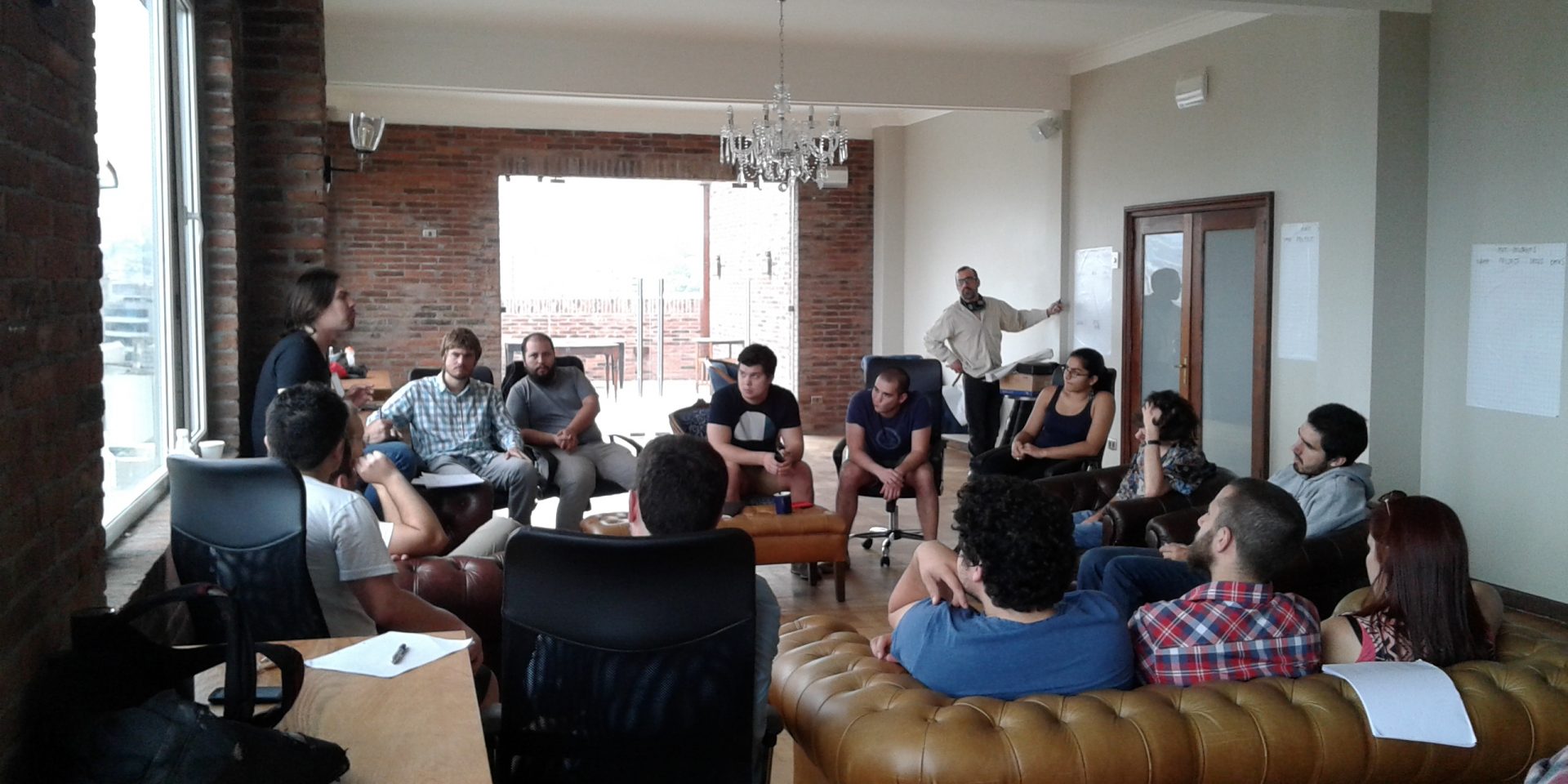

Two Fondecyt were granted to researchers associated with our Center: “Modulation of proactive cognitive control through prefrontal oscillatory training”, led by Pablo Billeke, and “Jealousy as an adaptation designed to protect close attachment bonds”, led by the professor and associate researcher, Ana Fernández. In addition, through an Inter-Faculty Contest, the CICS will collaborate in the “International Study on Child Welfare” by academics Jaime Alfaro and Carlos Rodríguez-Sickert.
Pablo Billeke will lead the research project “Modulation of proactive cognitive control through prefrontal oscillatory training” thanks to the Fondecyt awarded by Conicyt. The Ph.D. in Medical Sciences is one of the creators of the NeuroCICS where, through multimodal tools, they study the neurobiological mechanisms underlying complex human behaviors, through a multidisciplinary approach that deals mainly with social behaviors.
In March, they will start the project with the students of the Doctorate in Social Complexity Sciences (DCCS), María Paz Martínez and Gabriela Valdebenito. In two stages, two groups of 50 subjects will be studied, they will have to perform proactive cognitive control tasks that will be measured through the use of Structural and Functional Magnetic Resonance (fMRI), as well as measurements of brain electrical activity by Electroencephalogram (EEG) and techniques of brain activity intervention by Transcranial Magnetic Stimulation (TMS).
Billeke explains that “from a neurobiological point of view, it has been observed that in the mechanisms of learning and cognitive control, dopaminergic mesolimbic and medial prefrontal areas participate. On the other hand, proactive mechanisms have recently emerged in the evolution of primates, and involve anticipating possible environmental changes and evaluating the degree of evidence that would support courses of action”. From this base, they will investigate whether proactive cognitive control processes, which support behavioral adaptation to changing environments, recruit the oscillatory activity in the theta range of lateral prefrontal cortices and if this theta oscillatory activity participates causally in the mechanisms of proactive cognitive control, being susceptible to be modulated by non-invasive brain stimulation that generates oscillatory training.

With the aim of understanding jealousy from the perspective of Evolutionary Psychology, Ana María Fernández, active collaborator with the Center and the training of DCCS students, was awarded the Regular Fondecyt “Jealousy as an adaptation designed to protect close attachment bonds”. Dr. Fernandez said that seeks to “specify the role of jealousy as a biologically adaptive emotion that protects safety and love: jealousy can protect a valued relationship, away from rivals who you love a lot.” The Director of CICS, Carlos Rodríguez-Sickert, will participate as a co-researcher in his role as an expert in game theory to model and compare emotional behavior. In addition, María Barbato will work as a doctoral thesis to advance the interdisciplinary research of jealousy and confidence from Psychology, Economics and Psychology.
On April, they will conduct experiments on jealousy in response to the threat posed by a social rival (another child, a close friend, or a potential partner), for a close and valued relationship. The hypothesis is that jealousy responds to the potential place that a third party can occupy, replacing the jealous individual in that which makes it special or close to the other.
They will evaluate jealousy of children between 1 and 4 years old with their mother -with a doll that looks like another child and interacts with the mother-; the jealousy of friends of the same sex before another friend of the same sex whose characteristics of attractiveness and personality are highlighted; the jealousy of a couple before a person of the opposite sex whose characteristics that the couple likes are explicit; and we end with trustworthy economic games that seek to separate distrust (directed at the person one values) from situations that provoke jealousy (given by the social rival), and that if they are correct they should increase cooperation instead of diminishing it (as it would mistrust), which will be evaluated in the last year of study.
Each year the Directorate of Research and Doctorates grants funds to encourage collaboration between Faculties for the joint development of projects that are linked to priority issues for the University.
In the line of education and school climate, the researchers Jaime Alfaro and Carlos Rodríguez-Sickert, from the Faculties of Psychology and Government respectively, were awarded “International Study on Child Welfare” (ISCWEB 2017-2018), which mean they will have 18 months and $10 million to carry out their interdisciplinary research.
The results of these investigations should be translated into greater knowledge and scientific publications with high impact; the establishment of national and international collaboration networks; the training of young scientists in research incorporating undergraduate and postgraduate students as thesis students; the dissemination of new scientific knowledge; and carrying out transfer actions to the external environment.
The Contest convened 11 proposals from the different Faculties of the university, which were evaluated by two external peers, both national and international, with an academic degree of doctor, postdoctoral and Fondecyt evaluators. International collaborators include academics from the University of California, Davis.